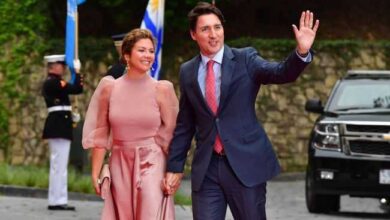In recent years, the call for gender equality has gained significant momentum across the globe. One area where this struggle continues is in political leadership. Despite progress, women remain underrepresented in politics, hindering the full realization of democratic ideals. This article explores the importance of fostering inclusive politics and promoting gender equality in leadership positions. By addressing the barriers and highlighting the benefits of women’s participation in politics, we can create a more representative and equitable society.
The Current Landscape: Gender Disparities in Political Leadership
Gender disparities persist in political leadership, with women often being underrepresented in decision-making roles. Statistical data reveals the extent of the problem, highlighting the need for concerted efforts to promote gender equality.
In this section, we will delve into the current state of affairs, examining the challenges faced by women in politics and the impact of gender disparities on policy outcomes.
Breaking Barriers: Overcoming Challenges for Women in Politics
Despite progress, women encounter numerous challenges when entering the political arena. This section will explore the social and cultural biases and stereotypes that impede women’s political advancement.
Additionally, we will discuss the importance of addressing structural barriers and providing institutional support to create an inclusive political environment. Access to resources, networks, and mentorship opportunities will also be examined as critical factors in overcoming obstacles.
Advantages of Gender Equality in Political Leadership
Gender equality in political leadership brings forth numerous benefits for society as a whole. This section will delve into the advantages of having diverse perspectives and inclusive decision-making processes.
By having more women in leadership positions, policy outcomes can better reflect the needs and concerns of all citizens. Furthermore, increased gender equality fosters public trust and confidence in governance.
Initiatives and Strategies for Promoting Gender Equality in Politics
Achieving gender equality in politics requires targeted initiatives and strategies. This section will explore various approaches, such as quota systems and affirmative action, which aim to increase female representation.
We will also discuss political party reforms and internal regulations that can promote gender equality. Additionally, the importance of strengthening women’s leadership and political training programs will be emphasized.
Case Studies: Success Stories and Lessons Learned
This section will highlight successful examples of countries that have made significant progress in promoting gender equality in politics. By examining these case studies, we can gain insights into the strategies employed, their effectiveness, and the challenges faced. Lessons learned from these experiences can guide other nations in their efforts to advance gender equality in political leadership.
Conclusion
Achieving gender equality in political leadership is not only a matter of fairness but also essential for the development of inclusive and representative democracies.
By breaking down barriers and promoting women’s participation in politics, we can harness the full potential of diverse perspectives and create policies that address the needs of all citizens. It is crucial for governments, political parties, and civil society to collaborate and implement strategies that empower women to take on leadership roles.
Only through these collective efforts can we foster inclusive politics that truly reflect the aspirations and interests of the entire population.
Also read: How Government Works: Exploring What Happens Behind the Scenes





